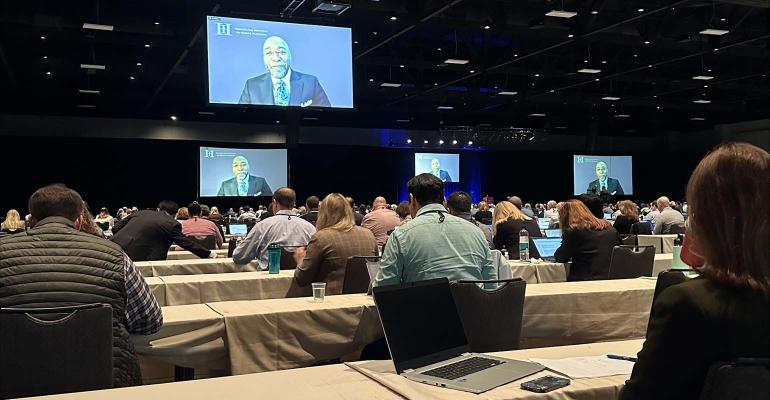In his presentation, “What’s Under the Robe?” at the 57th Annual Heckerling Institute on Estate Planning in Orlando, Fla., Judge Maurice B. Foley took the audience on a concise journey through his career starting from his days as a young attorney. The recap of his career thus far is an essential part of the main takeaway of the session—his personal judicial philosophy and why he believes prior legislative and executive branch experience may impact a judge's judicial philosophy.
Experience Shaped Foley’s Philosophy
Prior to the appointment to the court, Foley was an attorney for the Legislation and Regulations Division of the Internal Revenue Service, tax counsel for the United States Senate Committee on Finance and deputy tax legislative counsel in the U.S. Treasury’s Office of Tax Policy. It was in these early days that Foley said he developed his disdain for judge-made law and reinforced his affinity for following the statutory law. With clever tales and examples of actual experiences during his career in his various positions, including his time spent attending legislative drafting sessions, Foley built his case for why he strongly believes the judge’s job is to look within the four corners of the law rather than come up with their own interpretations, specifically when loopholes to legislature are involved.
For estate planners in the audience, Foley reiterated learning the importance of clarity when drafting. Mundane things can make a big difference, such as crafting sentences not subject to multiple interpretations, proper placement of commas, emphasis on clarity and most importantly not overreaching the Internal Revenue Service’s authority. As an attorney and legal editor, I enjoyed the emphasis on these mundane yet highly relevant points.
Foley also discussed valuable knowledge he picked up from the congressional sessions—for example, how are rules drafted to accomplish what the proposed legislature is intended to do.
He also explained how questions and comments raised result in technical corrections or amendments to the applicable statutes. Another important point he focused on was the limitations of the language written and the inevitable gray areas.
The Role of a Tax Court Judge
His insight on a judge’s role from the viewpoint of Congress is that it’s not the court’s job to close loopholes that Congress has left open if they clearly left them open. It’s the job of Congress to close loopholes. He opines that there’s some unspoken responsibility to pick judges that don’t disrupt what Congress plans to do. The message from Congress is clear Foley said, don’t try to read our minds, follow the rules as we wrote them … if we went too far, we’ll fix; it’s not the judge’s job to figure it out or fix it.
Before reaching his conclusion, Foley indulged us in one more story, this time about the 2003 McCord v. Commissioner case on which he presided. He discusses how his court ruled against the taxpayer and how he wrote the dissenting opinion. The case went on to be reversed on appeal by the U.S. Court of Appeals for the 5th Circuit with that court quoting Foley’s dissent, “Undaunted by the facts, well-established legal precedent, and respondent’s failure to present sufficient evidence to establish his determinations, the majority allow their olfaction to displace sound legal reasoning and adherence to the rule of law.”
The takeaway of course is that judicial philosophy is a big deal; everyone is shaped by their experience and what they bring to the court. Foley’s approach was shaped by his role at the IRS, the exact limits of its authority and seeing where that line was and when it was crossed. Carefully examining the text and following it is crucial. Foley can easily see when the IRS has crossed the line. He’s a firmer believer in a judge’s role being not writing the laws but rather applying the law as written to the facts.





